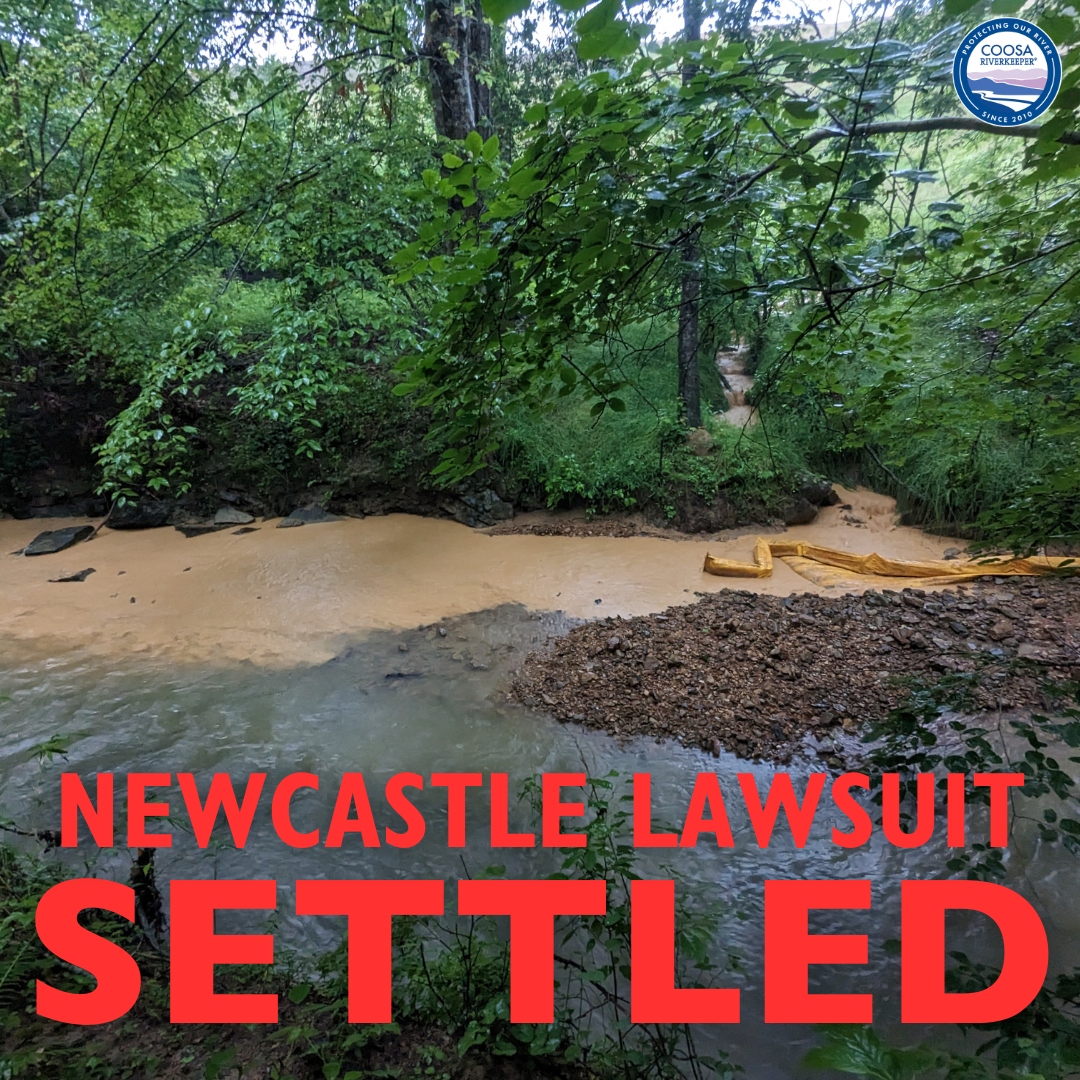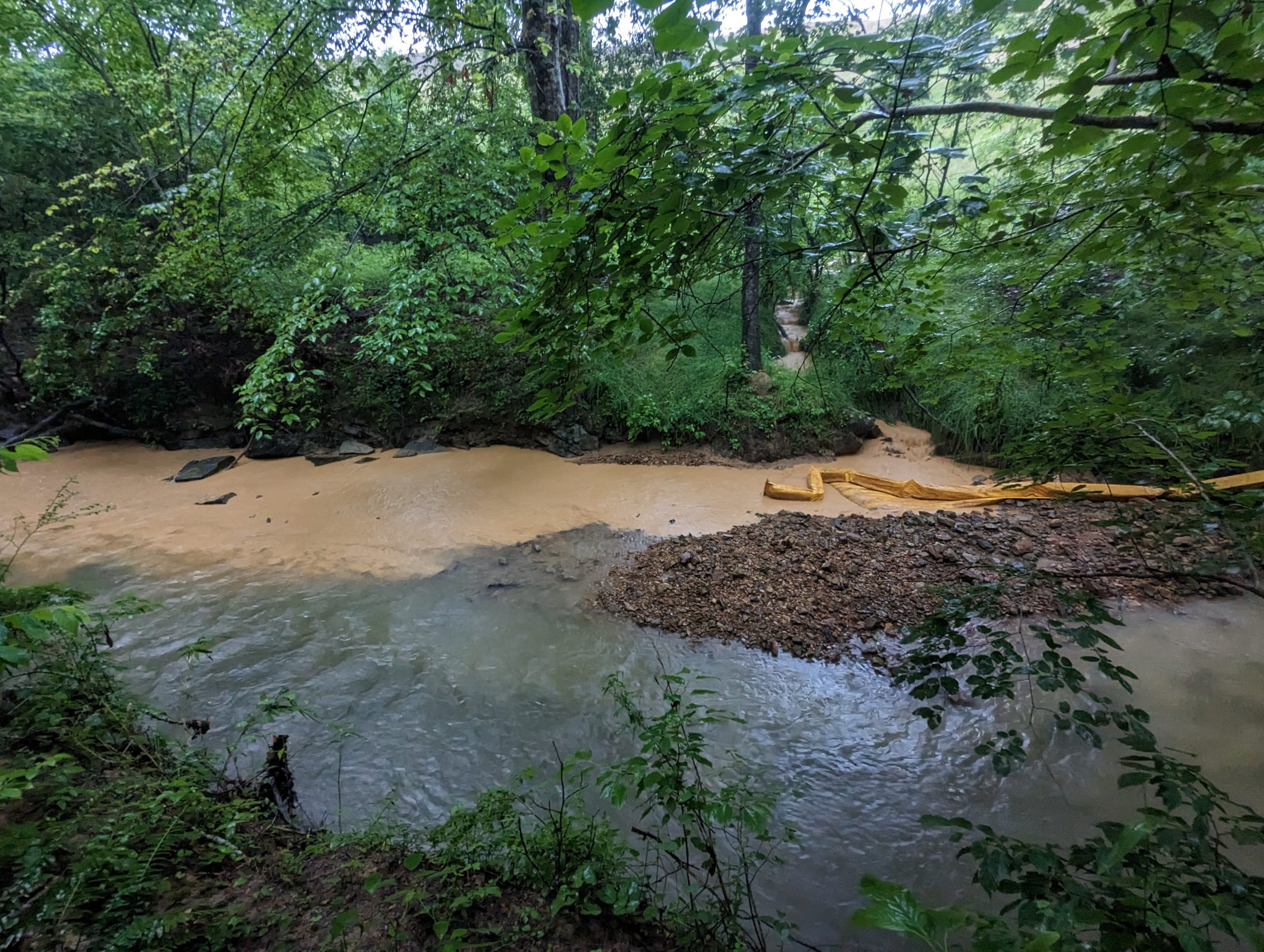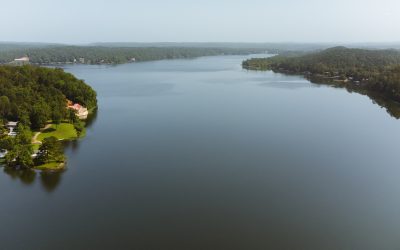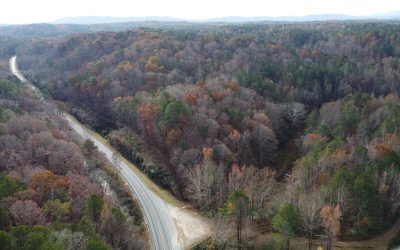
MT LAUREL, AL – The Southern Environmental Law Center (SELC) has reached a settlement with Newcastle Homes on behalf of the Coosa Riverkeeper.
Pelham, Alabama-based Newcastle Homes is the developer behind Melrose Landing, a 78-lot subdivision under construction adjacent to the Shelby County Dunnavant Valley Greenway, a popular recreation site for families that runs alongside the North Fork of Yellowleaf Creek, a tributary to Lay Lake.
In 2021, reports of visible streams of sediment from the Newcastle development in Yellowleaf Creek, a tributary of the Coosa River, led the Coosa Riverkeeper to conduct water quality sampling. The Coosa Riverkeeper’s monitoring revealed that the development was contributing to 12 to 14 times more sediment than its Clean Water Act permit allowed. SELC then filed a complaint on behalf of the Coosa Riverkeeper against Newcastle Homes after documenting hundreds of violations of the Clean Water Act.
Under the Clean Water Act protections, developers must utilize Best Management Practices to prevent uncontrolled volumes of sediment and mud from being washed away into downstream waterways and reduce the turbidity, a measure of water clarity. Stormwater runoff and the sediment that comes with it harms water quality, putting businesses and wildlife that depend on clean water at risk, damages public and private property, and increases water treatment costs for communities.
The settlement between Newcastle and Coosa Riverkeeper requires the developer to repay the Riverkeeper $39,750 for monitoring expenses over two years. Furthermore, Newcastle Homes will be fined $500 to $1000 for every future infraction. Under the settlement, these fines will be paid to Big Canoe Creek Partners, whose mission is to preserve Big Canoe Creek Preserve, a 422-acre preserve on a tributary of the Coosa River in Springville that was purchased with funding from Alabama’s Forever Wild Land Trust program. Next, SELC will ask a Magistrate Judge to approve the consent decree.
“After violating its permit for years, we are hopeful that this settlement will stop Newcastle from polluting Yellowleaf Creek, once and for all,” said Justinn Overton, Staff Riverkeeper at Coosa Riverkeeper. “This is a victory for everyone who loves and appreciates the beauty of the North Fork of Yellowleaf Creek who should not have to compromise healthy waterways for development interests.”
“There are good and bad ways to develop a piece of land. Developers should realize that clear-cutting and then placing a subdivision on a mountain without phasing the development or maintaining any trees has a price,” said Sarah Stokes, senior attorney for SELC in Alabama. “It’s much harder for a developer to maintain compliance with the law at that point. This settlement is a step in the right direction in bringing Newcastle back into compliance.”
The Coosa River stretches 280 miles across Alabama and helps form the Alabama River, then the Mobile River, before flowing into the Gulf of Mexico. The Coosa River was identified by American Rivers as the nation’s 5th most endangered river in 2022, largely due to the impacts of agricultural operations including poultry facilities and runoff from urban centers and development.
###
The Southern Environmental Law Center is one of the nation’s most powerful defenders of the environment, rooted in the South. With a long track record, SELC takes on the toughest environmental challenges in court, in government, and in our communities to protect our region’s air, water, climate, wildlife, lands, and people. Nonprofit and nonpartisan, the organization has a staff of 200, including over 100 attorneys, and is headquartered in Charlottesville, Va., with offices in Asheville, Atlanta, Birmingham, Chapel Hill, Charleston, Nashville, Richmond, and Washington, D.C.
Coosa Riverkeeper is a citizen-based river conservation non-profit whose mission is to protect, restore and promote the Coosa River and its tributaries in Alabama. Our organization investigates pollution issues, educates the public, and advocates for the river, wildlife, and works to public health.
Need some background on this issue?
Under stormwater permit requirements, developers must utilize Best Management Practices to prevent uncontrolled volumes of sediment from being washed away and to reduce the turbidity in downstream waterways. Sediment is one of the leading causes of water pollution in Alabama, and developers have a responsibility to ensure that their operations do not harm water quality for downstream communities who rely on these waters for fishing, swimming, navigation, and drinking water supplies.
Coosa Riverkeeper received a citizen complaint in December 2020 from a trail runner on the Shelby County Dunnavant Greenway Trail who voiced concerns about the construction runoff at the Melrose Landing Development site. The trail spans over a mile along the North Fork of Yellowleaf Creek, a tributary to Lay Lake. Coosa Riverkeeper and Shelby County filed complaints with the Alabama Department of Environmental Management (ADEM) in December 2020, resulting in only a slap on the wrist from the state agency.
Coupled with the inadequate action taken by ADEM, Newcastle’s inaction has worsened stormwater pollution in Shelby County with no signs of improvement. As a result, Coosa Riverkeeper and the Southern Environmental Law Center filed a notice of intent to sue in June 2021, and has now filed suit in the U.S. District Court for the Northern District of Alabama.





